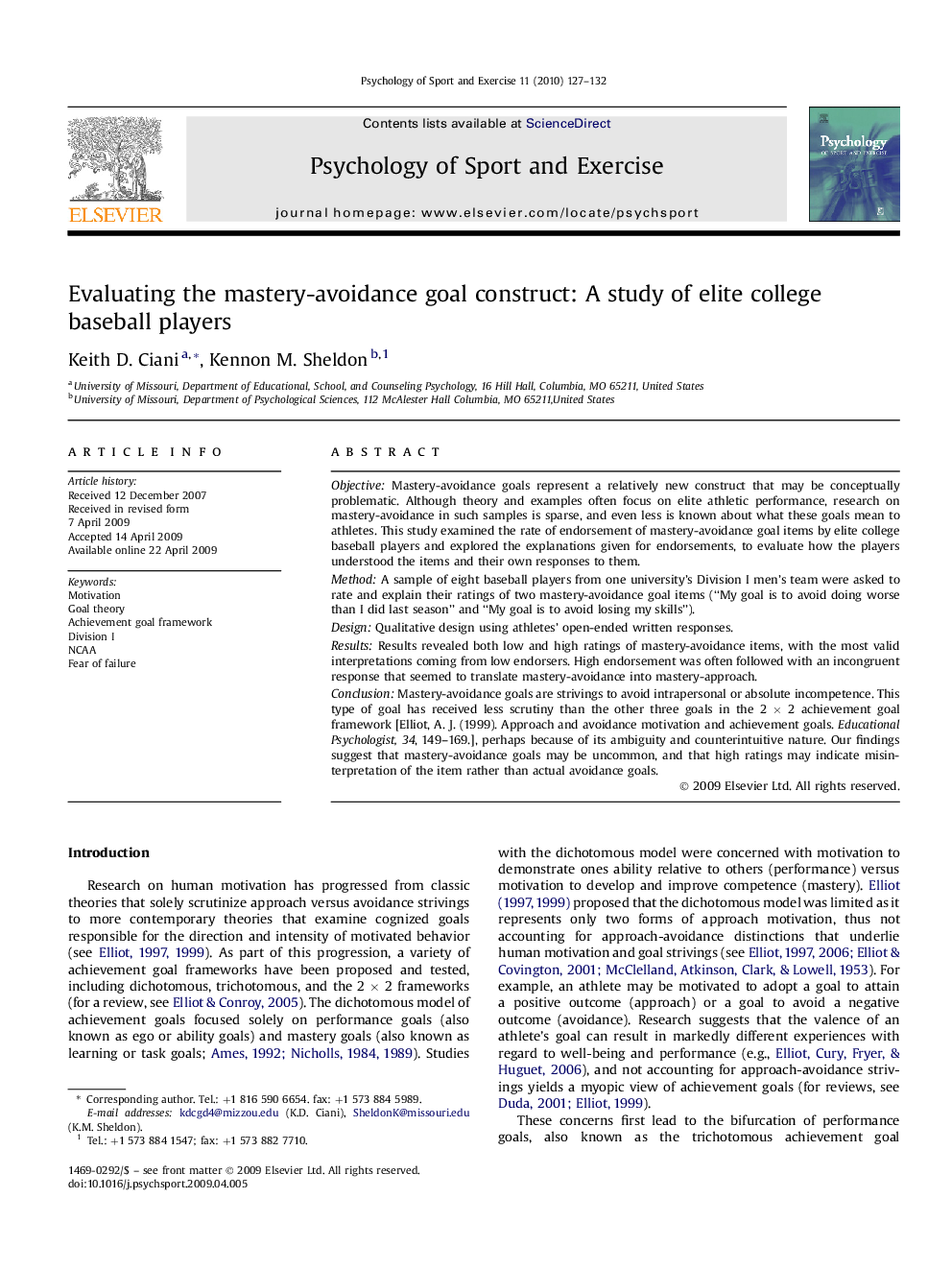| کد مقاله | کد نشریه | سال انتشار | مقاله انگلیسی | نسخه تمام متن |
|---|---|---|---|---|
| 894611 | 1472142 | 2010 | 6 صفحه PDF | دانلود رایگان |

ObjectiveMastery-avoidance goals represent a relatively new construct that may be conceptually problematic. Although theory and examples often focus on elite athletic performance, research on mastery-avoidance in such samples is sparse, and even less is known about what these goals mean to athletes. This study examined the rate of endorsement of mastery-avoidance goal items by elite college baseball players and explored the explanations given for endorsements, to evaluate how the players understood the items and their own responses to them.MethodA sample of eight baseball players from one university's Division I men's team were asked to rate and explain their ratings of two mastery-avoidance goal items (“My goal is to avoid doing worse than I did last season” and “My goal is to avoid losing my skills”).DesignQualitative design using athletes' open-ended written responses.ResultsResults revealed both low and high ratings of mastery-avoidance items, with the most valid interpretations coming from low endorsers. High endorsement was often followed with an incongruent response that seemed to translate mastery-avoidance into mastery-approach.ConclusionMastery-avoidance goals are strivings to avoid intrapersonal or absolute incompetence. This type of goal has received less scrutiny than the other three goals in the 2 × 2 achievement goal framework [Elliot, A. J. (1999). Approach and avoidance motivation and achievement goals. Educational Psychologist, 34, 149–169.], perhaps because of its ambiguity and counterintuitive nature. Our findings suggest that mastery-avoidance goals may be uncommon, and that high ratings may indicate misinterpretation of the item rather than actual avoidance goals.
Journal: Psychology of Sport and Exercise - Volume 11, Issue 2, March 2010, Pages 127–132